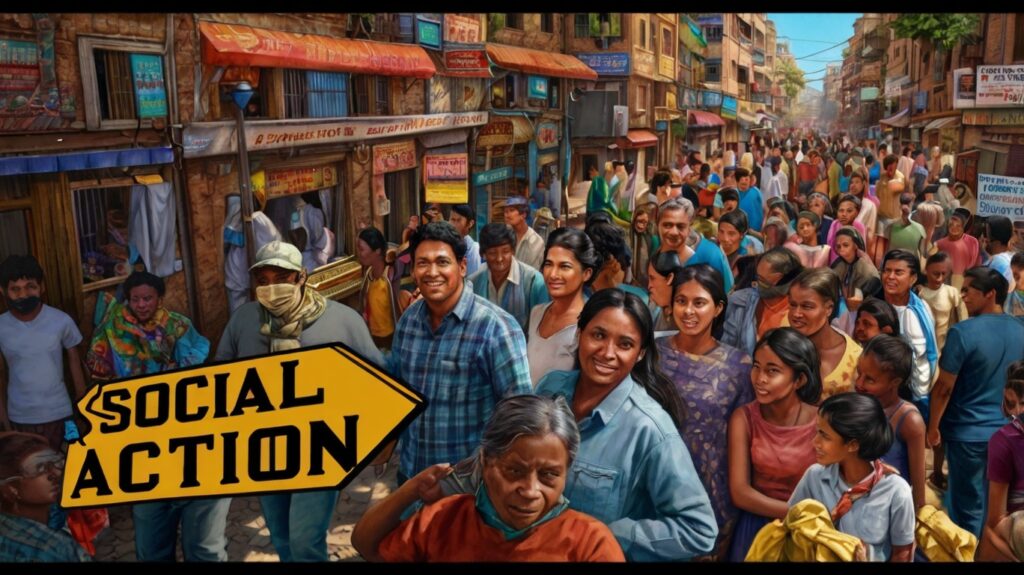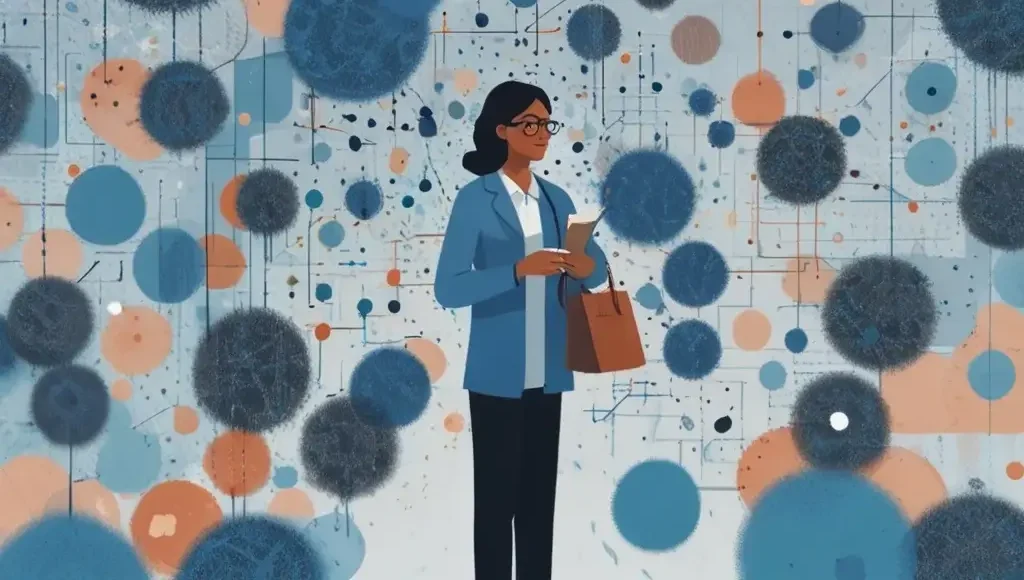What is social action? In social work, it is an important subject of study. But along with this aspect, social action is an organized group process that is used to solve the problems under this process. Public opinion is motivated towards attaining the aims of social work. In other words, social action is a process which is used for the achievement of social objectives. It is used as a secondary method of social work.
What is Social Action?
Some of the definitions of social action are given below:
- W.A. Friedlander: Social action is an individual, group, or community effort that aims to bring about changes in social legislation and welfare services.
- H.L. Witmer: The term social action refers to organized and legally permitted activities designed to mobilize public opinion, legislation, and public administration in favor of objectives believed to be socially desirable.
- K.K. Jacob: Social action is essentially an effort at initiating suitable changes and reforms to improve socio-economic conditions and to better the social climate.
An analysis of the definitions given above leads to the conclusion that social action is an organized effort that aims to solve social problems confronting individuals, groups, or communities. It is on the practical plan, nearer to social reform than to social revolution, which aims at smashing the entire existing social structure and building up a new social setup.
Importance of Social Action
Changes occur in every society. Along with these changes also emerge many problems of various dimensions. For this purpose;
- The process of social action, therefore, tries to bring about the adjustment of society with these changes.
- Besides, social action, as a secondary method of social work, is oriented towards the accomplishment of democratic values that should be introduced to every citizen. For this purpose, social action can be used as a base.
- Another aim of social action is to solve social problems. From this point of view, there is a large scope for social action in our society, which is overridden by numerous social problems.
- The problems with regard to individuals and families need top priority. It indirectly brings improvement in social conditions.
- There is much pathology [1] that emerges due to poor economic conditions, can be solved with the help of social action.
- Social action, in the context of our society, is limited to a transitional level, particularly with problems and conditions that affect the social functioning of its weaker sections, instead of expanding it towards overhauling the entire social structure, in which case it is more likely to receive resistance from the people.
- Social action, therefore, encourages the process of social reform rather than social revolution, which people neither want nor are prepared for.
- And in doing so, it should adopt such non-violent methods and means as may be useful in dealing with problems and conditions of weaker and vulnerable sections and thereby ensuring for them satisfying standards of life.
Objectives of Social Action
By nature itself, social action is typically undertaken by individuals who have traditionally exercised limited societal influence. Furthermore, any group can undertake social action, such as the poor, minority groups, or persons with disabilities. Collaboration among members of these organizations enables them to exert collective influence by utilizing the media and their voting power. Various forms of social, political, and economic pressure, including boycotts, are employed to persuade individuals in positions of authority to reconsider their positions. The primary objectives of social action are as follows.
- Unite and educate people in the community.
- Raise awareness about people’s rights and responsibilities.
- Advocate for people’s rights under the frame of law and order.
- Strive to prevent and eradicate any discrimination against individuals or groups based on their color, sex, race, age, religion, national origin, political beliefs, marital status, mental or physical disabilities, or any other personal attributes, conditions, or status.
- To develop an understanding of human rights/children’s rights
- To cultivate an insight into other people’s problems and their causes.
- To inform how resources are allocated through the taxation system and charitable giving.
- To inspire compassion linked to social and moral responsibility.
- To enhance communication skills and participation in the community.
- To develop the ability to make choices, set goals, and take action.
- To work towards awareness and promotion of the right to dignified living.
- To provide information on issues related to adoption and child welfare.
- To initiate research and documentation leading to the publication of papers for increased awareness.
- To create networks, assist, promote, encourage, and support agencies involved in social development.
- To provide assistance to established agencies in the social sector in the areas of technology and automation, streamlining of procedures and practices, training, and capacity building, leading to enhancement of performance.
- To encourage partnerships and participate in alliance-building efforts.
- To provide a forum for interactive sessions between various segments of society.
- To work towards sustainability of special cases of agencies by mobilizing funds through sponsorship, memberships, donations, exhibitions, contributions, etc.
Generic Objectives of Social Action
Human behavior is manifested in terms of actions. Therefore, analysis of social action occupies a central place among all the social sciences.
According to Friedlander, social action is a process that is used to achieve social objectives. It is used as a secondary method of social work. Moreover, changes occur in every society, and along with these changes, many problems of various dimensions emerge. The process of social action aims to establish a society’s adjustment to these changes. Its use in social work factors may be evaluated as follows:
Removal of Social Problems
The principal aim of social action is to solve social problems. From this point of view, there is a large scope for social action in our society.
Solution of Individual and Family Problems
The problems with regard to individuals and families need top priority. In this direction, efforts are being made at the government and private levels. These problems can be solved with the help of social action.
Spread of Democratic Values
Social work is based on democratic ideas. Justice, equality, and liberty are its main pillars. In practice, these ideas should be available to every citizen. Therefore, in order to accomplish these democratic ideas, rapid changes in the present social structure are inevitable. For this purpose, social action can be used as a base.
Encouragement to Organizational Function
Social action is a process having various forms as well as various modes of execution. Furthermore, social processes could be integrative or disintegrative. Therefore, with the help of integrative social processes that mainly focus on encouraging organizational function, the speed of social action can be increased.
Social Reforms
With the help of social action, we can encourage the process of social reforms. It indirectly brings improvement in social conditions. There is much pathology that emerges due to general economic conditions, which can be solved with the help of social action.
[1] Social pathology refers to the study of social problems.






